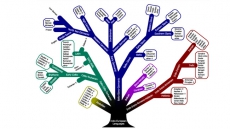Parents, you may want to not introduce your teenagers to alcohol as a recent study has found that rather than encouraging better drinking habits in adulthood, it could be doing more harm.
The University of Adelaide team surveyed 2,800 students aged from 12 to 17 to provide a comprehensive snapshot of their drinking habits and influences.
"Harmful alcohol use is a serious problem in Australia, and drinking patterns are often first set in adolescence," said lead author Jacqueline Bowden. "With alcohol contributing to four of the top five causes of death in young people, and a leading cause of cancer in our community, it's important for us to better understand drinking behaviour among young people so we can help to prevent or delay it."
"One of the major messages from our study is that parents have more influence on their teenagers' decisions regarding alcohol than they probably realise. And attitudes towards alcohol really do make a difference, and can help prevent children from drinking at an early age."
The study found that by age 16, most students had tried alcohol, while a third of students reported that they drank alcohol at least occasionally.

Only 28% of students were aware of a link between alcohol and cancer and across all ages, students were less likely to drink if their parents showed disapproval of underage drinking, while those aged 14-17 were less likely to drink if they knew about the link between alcohol and cancer.
The research also found that smoking and approval of drinking from friends were more likely to result in drinking. Once young people have become regular drinkers, the main predictor for drinking is the perceived availability of alcohol
Cashed up students are more likely to drink.
Lincoln Size, Chief Executive Cancer Council SA, said: "This latest evidence highlights the need to educate young people about the consequences of alcohol consumption and for parents to demonstrate responsible drinking behaviour. We need to get the message through that what may be considered harmless fun actually has lifelong consequences."
Bowden noted that people need to address the issue of supply to teenagers. "Many parents believe providing their children with alcohol in the safe environment of their home teach them to drink responsibly. However, the weight of evidence suggests that this increases consumption, and is not recommended."
"Our results also found that those adolescents who thought they could buy alcohol easily were more likely to drink regularly. The issue of availability - including price - and marketing of alcohol in the community is a major hurdle to be overcome," added Bowden.

"Alcohol is more affordable in Australia than it has been in the past 30 years, and the number of premises selling alcohol in Australia has increased substantially in the past 15 years. Throw advertising and sports sponsorship into the mix and we have some very strong messages that alcohol is the norm."
She pointed that parents have a significant and substantial role to play, to help their kids develop a healthier relationship with alcohol early. "Parents can set the boundaries and create clear expectations."
According to Bowden, parents should:
- Discuss alcohol use with their children, and the fact that not everyone drinks
- Get to know upcoming activities, such as parties, and set expectations for behaviour
- Reconsider drinking in front of children, as most alcohol is consumed by adults at home
- Have alcohol-free events
- Avoid binge drinking
- Don't buy alcohol for adolescents or provide it at parties.

"We often forget that alcohol is the most widely used recreational drug in Australia and has an enormous cost on families. It is important that parents set the right example," Bowden said.
The study is published in the journal BMC Public Health





